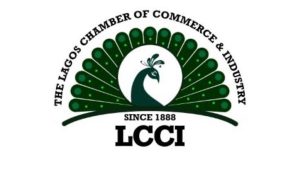Onome Amuge
The Lagos Chamber of Commerce and Industry (LCCI) has urged Nigerian policymakers to ensure that recent macroeconomic stabilisation translates into tangible economic relief for businesses and consumers, who continue to battle high inflation and a volatile currency.
While commending the government’s bold economic reforms including the removal of fuel subsidies and the unification of exchange rates which it said had begun to steady the macroeconomic ship, the chamber warned that many companies, particularly smaller enterprises and manufacturers, were still facing economic headwinds.
In a statement released by Director-General Chinyere Almona, titled “BUILDING A RESILIENT ECONOMY THROUGH STRUCTURAL REFORMS AND STRATEGIC LIBERALIZATION”, the LCCI acknowledged the positive macro indicators, such as the 4.6 per cent GDP growth in the final quarter of 2024 and the 3.46 per cent annual expansion. However, it stressed that these gains were not yet filtering through to the real economy.
“Despite encouraging macro indicators, many businesses, especially MSMEs and manufacturers, face harsh realities, including high inflation, volatile exchange rates, energy cost spikes, and limited access to credit and infrastructure,” the LCCI cautioned.
To bridge this gap, the chamber called for targeted interventions to support struggling sectors, improvements to critical infrastructure, and measures to bolster consumer purchasing power. “The Lagos Chamber of Commerce and Industry (LCCI) has called on policymakers to convert macroeconomic stability into real economic relief by targeting support to struggling sectors, improving infrastructure, and strengthening consumer purchasing power,” the statement emphasised.
The LCCI also aligned with the World Bank’s recent critique of Nigeria’s protectionist trade policies, highlighting the potential benefits of a more strategically open economy. These advantages, the chamber noted, include increased customs revenue, a reduction in poverty, lower living costs, and more efficient markets.
To this end, the LCCI advocated for a phased trade reform agenda, implemented over a period of 12 to 36 months on a sector-by-sector basis. This should be accompanied by support for domestic industries, upgrades to customs infrastructure, and the expansion of social safety nets, the group argued. Such an approach, it believes, would not only align with the objectives of the African Continental Free Trade Area (AfCFTA) but also enhance Nigeria’s competitive position in intra-African trade.
While acknowledging that the current administration’s reforms had improved fiscal sustainability and spurred some investment, the LCCI pointed out that currency devaluation and persistent inflation, which stood at 23.71 per cent in April 2025, were significantly impacting SMEs and household finances. “However, these gains must be deepened through inclusive, job-creating strategies that support local industries and uplift millions out of poverty,” the chamber stated.
The true measure of the reforms’ success, the LCCI asserted, must now include job creation, business growth, and a tangible improvement in living standards. It identified promising sectors such as agribusiness, renewable energy, technology, logistics, and clean energy infrastructure as areas with significant potential.
“Nigeria faces a critical choice between a restrictive, high-cost economic model and one that embraces strategic openness, fiscal efficiency, and private sector-led growth,” the LCCI argued, firmly backing the latter as the path towards sustainable economic stability, industrial empowerment, poverty reduction, and long-term prosperity.
Given the persistent double-digit inflation, the chamber stressed the ongoing threat to economic stability and growth. It advised the government to maintain its focus on reforms aimed at strengthening the food production chain until food security is achieved.
“We support the government in thinking big and acting out of the box in the face of uncertainties and disruptions. We, however, wish to urge the government to remain focused on the reforms, introduce phased increases in levies, and consult more with critical stakeholders to ensure improved implementation of policies,” the LCCI stated, adding that boosting the productive sectors was key to job creation, revenue generation, and reducing reliance on imports,a common thread in addressing the issues raised by the World Bank.









